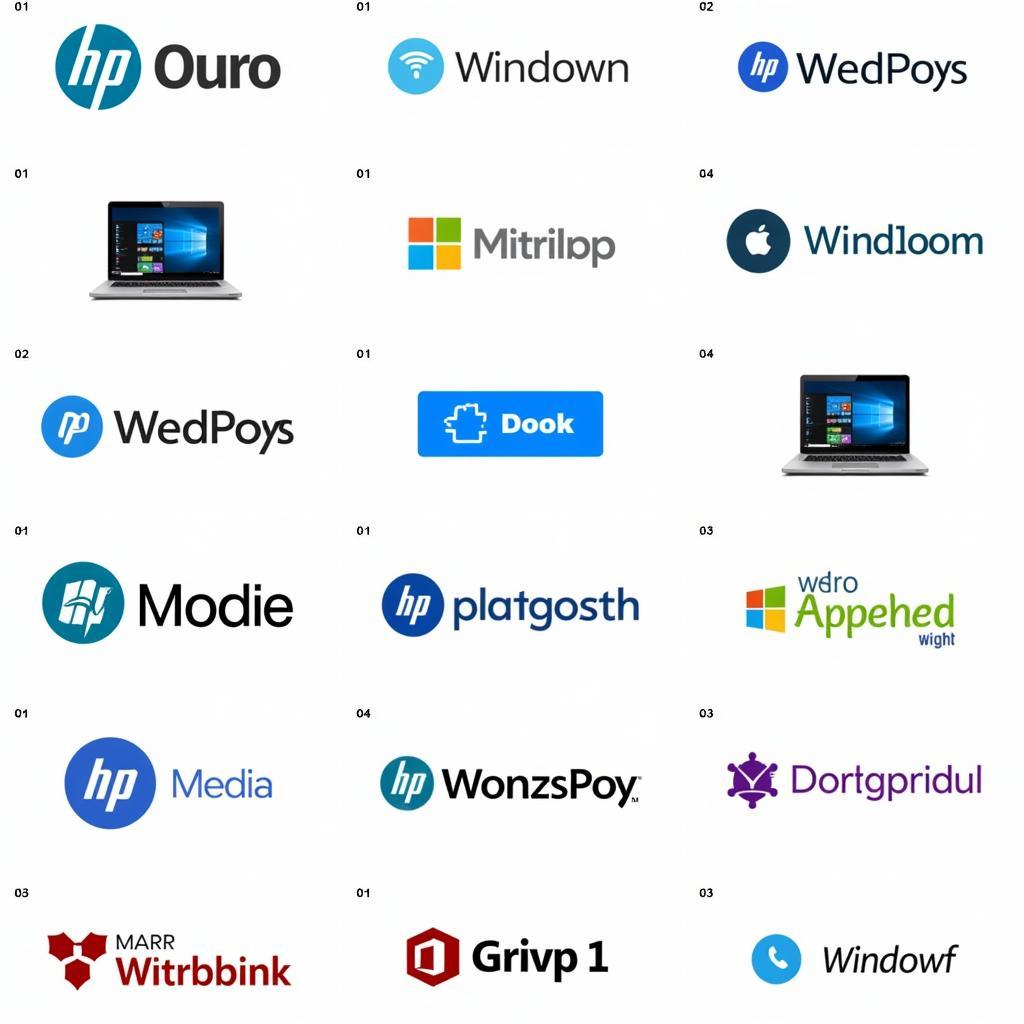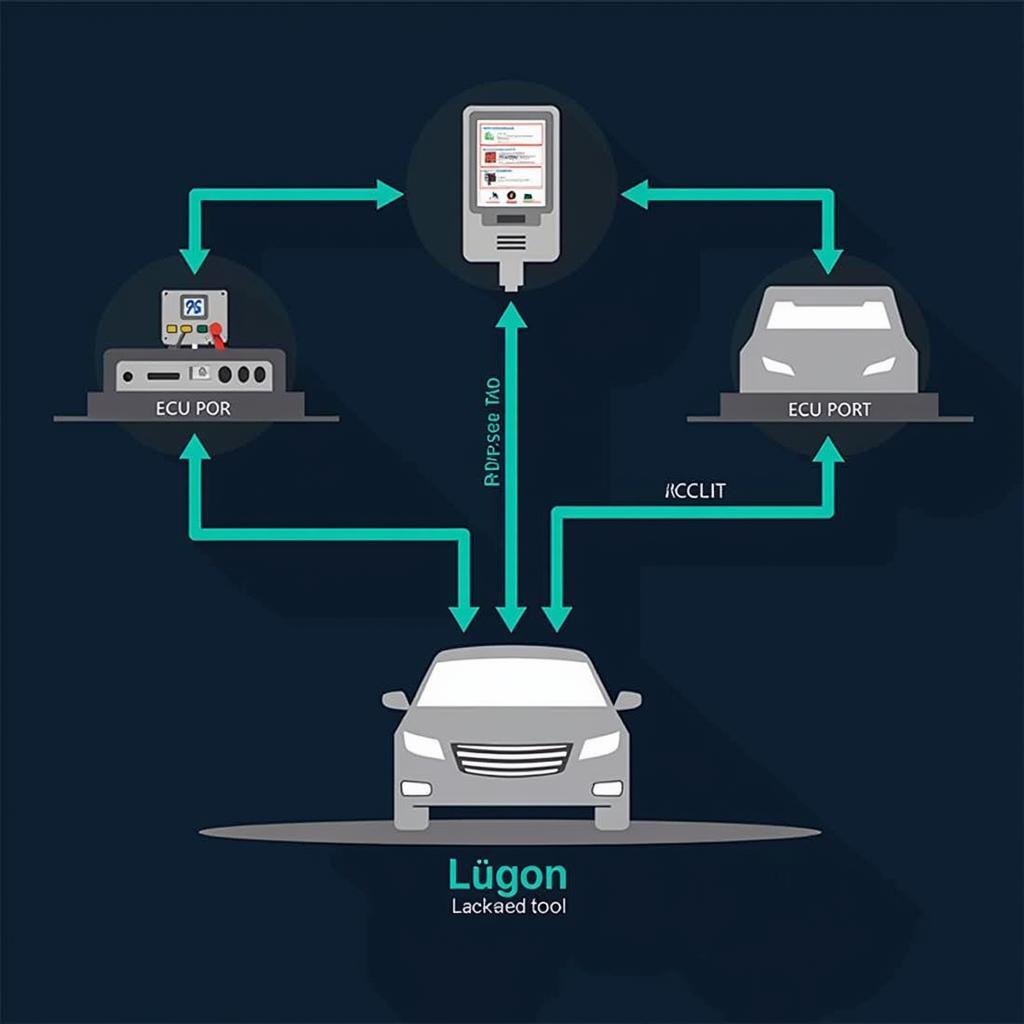A Diagnostic Tool Vector Icon, often a simple illustration of a car with a wrench or a computer screen, represents a powerful tool in the automotive world. This icon symbolizes the software and hardware used to diagnose and troubleshoot vehicle problems. But what exactly are these tools, and how can understanding them benefit car owners, repair shops, and technicians?
Diving Deep into Vehicle Diagnostics: More Than Meets the Eye
Gone are the days of relying solely on mechanical know-how to fix cars. Modern vehicles are complex machines with intricate electronic systems. This complexity necessitates advanced diagnostic tools that can communicate with these systems, read error codes, and provide valuable data for efficient and accurate repairs.
The Importance of Diagnostic Tools: Why They’re Essential
Diagnostic tools have become indispensable for several reasons:
- Accurate Diagnosis: These tools pinpoint the root cause of a problem, eliminating guesswork and unnecessary repairs.
- Time Efficiency: By quickly identifying issues, diagnostic tools save technicians valuable time, leading to faster turnaround times for customers.
- Cost Savings: Accurate diagnosis prevents the replacement of unnecessary parts, saving money for both the repair shop and the vehicle owner.
- Enhanced Safety: By identifying potential issues early on, diagnostic tools contribute to safer vehicles on the road.
Types of Diagnostic Tools: A Spectrum of Solutions
The market offers a wide range of diagnostic tools catering to various needs and budgets. Let’s explore the most common types:
1. Code Readers: The Entry Point
As the name suggests, code readers primarily read and display diagnostic trouble codes (DTCs) stored in a vehicle’s computer. These codes provide a starting point for diagnosing issues.
- Pros: Affordable, easy to use, suitable for basic diagnostics.
- Cons: Limited functionality, may not provide in-depth information.
2. Scan Tools: Taking a Deeper Dive
Scan tools offer more advanced functionality than code readers. They can read and clear DTCs, display live data streams from various sensors, and perform specific tests on vehicle systems.
- Pros: More comprehensive diagnostics, access to live data, wider compatibility range.
- Cons: Can be more expensive than code readers, may require some technical expertise.
3. OEM Scan Tools: Tailored to Perfection
Original Equipment Manufacturer (OEM) scan tools are specifically designed for a particular car make or model. They offer the most comprehensive diagnostic capabilities, including access to proprietary systems and functions.
- Pros: Unmatched diagnostic depth, access to manufacturer-specific information.
- Cons: Often the most expensive option, limited to a specific car make or model.
[image-1|diagnostic-tool-types|Types of Diagnostic Tools|A graphic illustrating the different types of automotive diagnostic tools, from basic code readers to advanced OEM scan tools, highlighting their respective features and capabilities.]
Choosing the Right Diagnostic Tool: Finding Your Perfect Match
Selecting the right diagnostic tool depends on several factors:
- Budget: Determine how much you are willing to invest.
- Skill Level: Consider your technical expertise and comfort level with using diagnostic equipment.
- Vehicle Type: If you work on a specific make or model, an OEM tool might be necessary.
The Future of Diagnostic Tools: Embracing Innovation
The automotive industry is constantly evolving, and so are diagnostic tools. Emerging trends include:
- Wireless Connectivity: Connecting wirelessly to vehicles for greater flexibility and convenience.
- Cloud-Based Platforms: Accessing diagnostic data and software updates remotely via the cloud.
- Artificial Intelligence: Utilizing AI to analyze data, predict potential issues, and provide proactive maintenance recommendations.
Conclusion: Empowering Automotive Excellence with Diagnostic Tools
Diagnostic tool vector icons represent a crucial aspect of modern vehicle repair and maintenance. From basic code readers to sophisticated OEM scan tools, these tools empower car owners, repair shops, and technicians with the information they need to keep vehicles running smoothly. Embracing these tools is essential for anyone involved in the automotive world, ensuring accurate diagnoses, efficient repairs, and ultimately, safer roads for everyone.
For expert advice on choosing the right diagnostic tool for your needs, contact the professionals at ScanToolUS at +1 (641) 206-8880 or visit our office at 1615 S Laramie Ave, Cicero, IL 60804, USA.
Frequently Asked Questions:
- Can I use a diagnostic tool on any car? Compatibility varies. Some tools are universal, while others are vehicle-specific.
- Do I need a diagnostic tool for basic maintenance? While not mandatory, a code reader can be helpful for understanding warning lights.
- Are expensive diagnostic tools always better? Not necessarily. The best tool depends on your specific needs and budget.
- Can I update my diagnostic tool with new software? Many tools offer software updates to stay current with vehicle technology.
- Where can I learn more about using diagnostic tools? Online resources, training courses, and user manuals provide valuable information.



